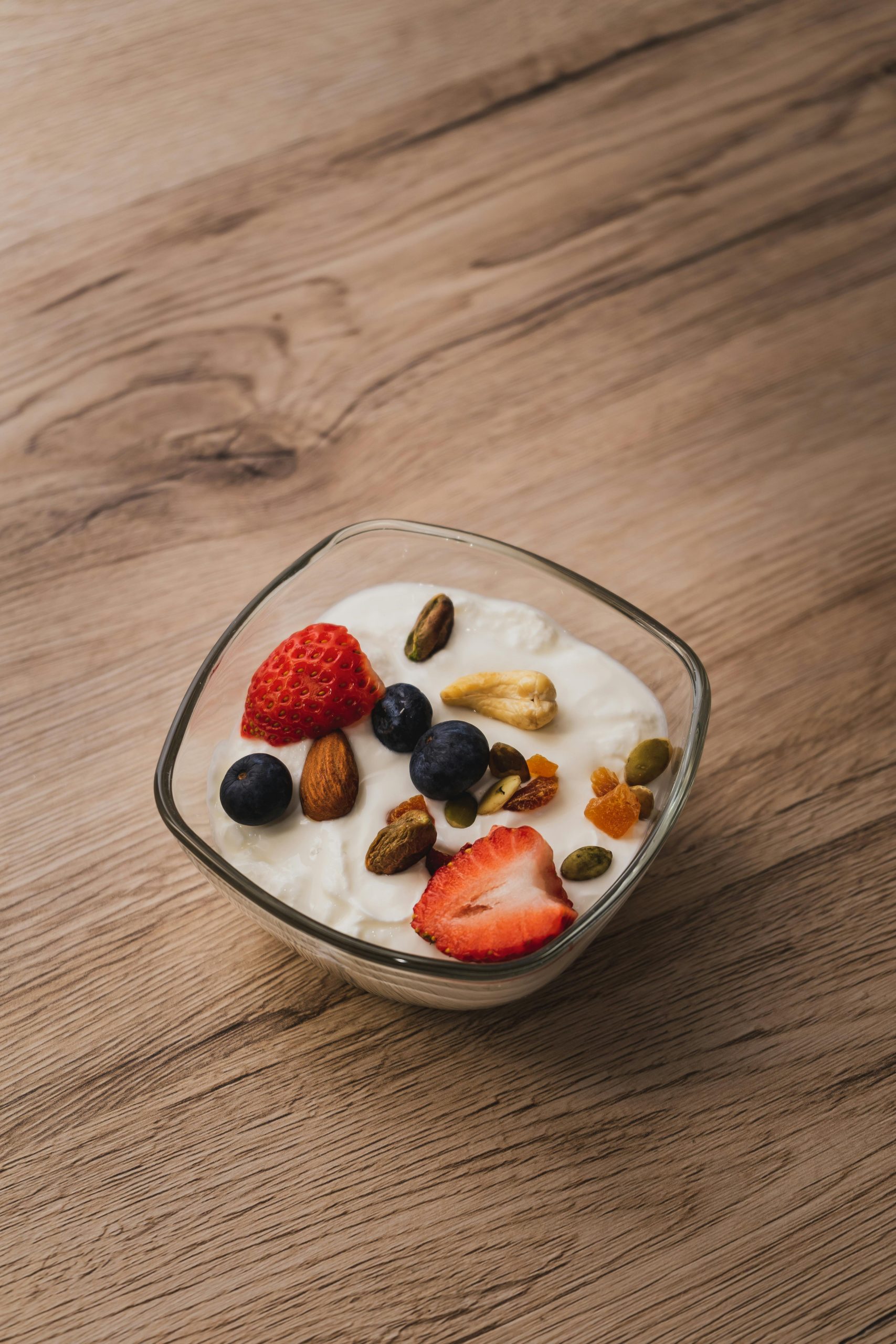There are certain foods that as you eat them, you are innately aware that they are truly good for you. Nutrient-dense yoghurt is such as food. Yoghurt is not only delicious and satisfying, but consuming yoghurt fills you with many benefits contributing towards health and wellness.

Yoghurt is not only a versatile food but has a distinctive and substantial nutritional profile. The diary product offers high-quality protein and can be a great a source of essential micro-nutrients from calcium to magnesium, eating a good amount of yoghurt provides us with phosphorus, potassium and zinc, and certain vitamins A, B12 and 2.
We trust yoghurt is good for us, but how well do you know your yoghurt?
Yoghurt undergoes a process of fermentation involving milk using beneficial bacteria such as Lactobacillus bulgaricus & Streptococcus thermophilus, also known as ‘cultures ‘. This type of bacteria is considered to be friendly, these micro-organisms are potentially important for your gut health, underpinning immune function and affecting your mood. Yoghurt has probiotic effects which can potentially aid towards digestion.

According to registered dietitian, Monique Piderit, “There is a wide range of studies that attest to positive impact of regular consumption of yoghurt. Notably, the country’s food-based dietary guidelines recommend daily consumption of yoghurt, milk, and maas. In yoghurt-making, the lactose in milk is broken down into lactic acid during fermentation. This significantly reduces lactose content of yoghurt and means that even those with lactose intolerance can safely consume it. The special yoghurt fermentation process also enhances product shelf life and food safety.”
In South Africa consumers are lucky to have a variety of yoghurt choices from plain to flavoured, Greek or double cream with variation in fat content choices, we even have yoghurt catered towards children.
Monique says, “South African consumers can choose from five fat content categories of yoghurts defined by both international and local regulations. Fat content depends on the type of milk used. Double-cream yoghurt typically has 6.5g fat per 100g while full-fat or full-cream has around 3.4g fat per 100g. Medium-fat yoghurts usually contain 2.4g fat per 100g, while low-fat means there is about 1.5g of fat per 100g. Yoghurt labelled ‘fat-free’ has less than 0.5g of fat per 100g. It is a common misconception that double-cream and full-cream yoghurts are high in energy. They are in fact much lower in fat, 4.5g or 3.3 to 4.5g compared to high-fat foods such as boerewors or a chocolate bar that may contain 20 to 30g of fat per 100g. In this context, all yoghurts are what we regard as relatively low in fat.”

How yoghurt supports healthy lifestyles
Studies both local and international have found that eating yoghurt regularly may reduce the risks of obesity, type 2 diabetes, hypertension, and cardio-vascular disease. Yoghurt consumption on a regular basis can support gut health and can make a potential difference in increasing microbial diversity and reducing chronic inflammation with far-reaching effects on your body’s overall resilience and mental well-being.
How to increase your yoghurt consumption
Eating yoghurt as a daily snack food is perfect choice for boosting natural health. It can be included as the basic or hero ingredient in smoothies and salads, plant-based bowls and meaty wraps, curries and healthy breads and muffins.

Here are some yoghurt recipe ideas from Rediscover Dairy:
Yoghurt Parfait – Layer plain yoghurt with fresh fruits and granola topped with chopped mint for a nutritious breakfast or snack.
Yoghurt & Seasonal Fruit Smoothie Bowl: Blend yoghurt with a choice of seasonal fruits. Create alternate layers of nuts, seeds, and honey topped with the yoghurt fruit blend for a refreshing and satisfying meal.
Spicy Greek Yoghurt Dip: Blend Greek-style yoghurt or double-cream yoghurt with herbs and add your favourite spices such as cumin and smoked paprika, as well as chilies, crushed garlic and a squeeze of lime for a flavourful dip. Enjoy with vegetable crudités such as cucumber wedges, celery stalks, mange tout, carrot sticks or baby tomatoes.
Yoghurt Smoothie – Quick and easy to prepare, blend plain yoghurt, a swirl of honey and any fruit, such as apple or banana slices, or whole berries. This nutrient dense smoothie is perfect for on-the-go breakfast, school and work lunch boxes or as a healthy snack.
Fruit Yoghurt Lollies – Try a blend of a seasonal fresh fruit, plain full-cream yoghurt with light touches of muscovado sugar, honey and vanilla extract for a delicious, healthy treat that the whole family will love.
Catch Rediscover Dairy in conversation with Professor Corinna Walsh on their new podcast. Award-winning nutrition researcher, Professor Walsh will be sharing her expertise on the role of fermented foods such as yoghurt and amasi in our diets, and the impact of gut health on overall wellness. You can download the Rediscover Dairy Podcast here: https://www.rediscoverdairy.co.za/podcasts/ or find it on all major podcasting platforms, including Apple Podcasts, Spotify, Google Podcasts, and more, from 27 March 2024.
For more dairy inspiration, visit https://www.rediscoverdairy.co.za/
Also see: The Remarkable Health Benefits of Chia Seeds
Feature image: Supplied
Reworked from a press release for Liquid Lingo

